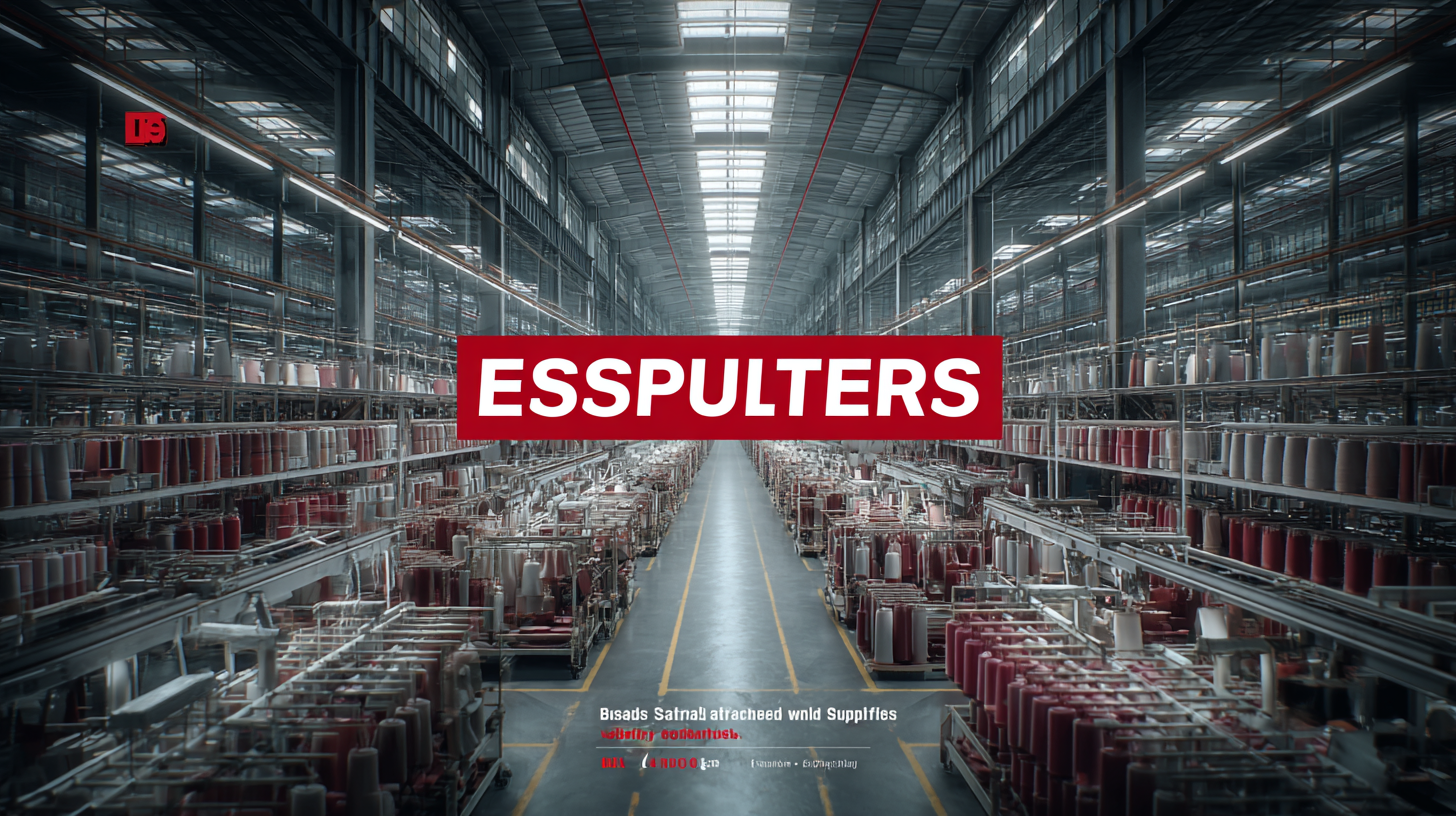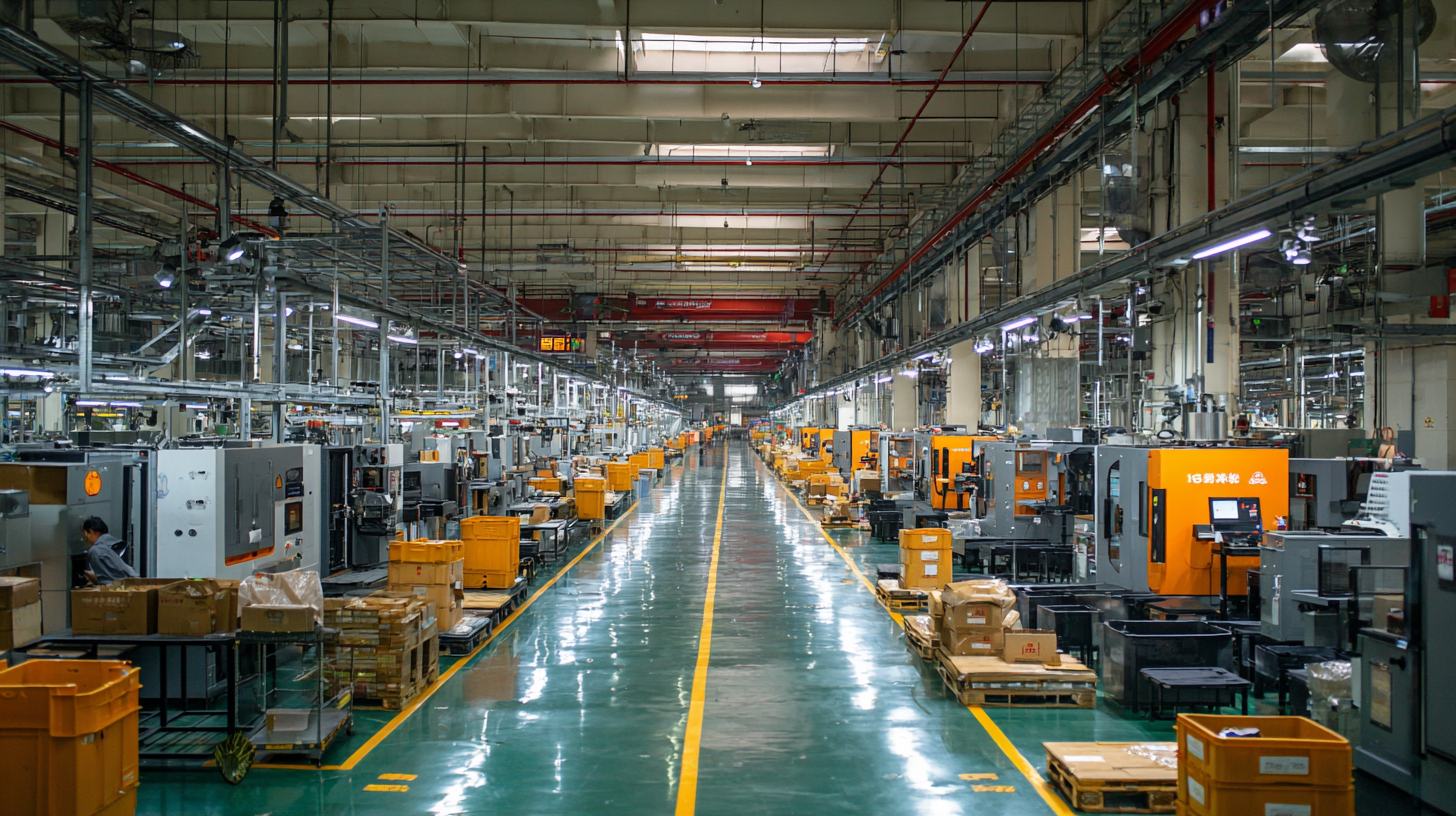
China Manufacturing Elevates Global Standards with Best Suppliers
In the rapidly evolving global marketplace, the importance of quality and efficiency in manufacturing cannot be overstated. China has emerged as a significant player in this arena, with its suppliers setting new benchmarks that elevate global standards. This ultimate guide explores the dynamic landscape of Chinese manufacturing and highlights the best suppliers that are driving innovation and excellence.

By examining their practices, technologies, and strategies, this guide aims to provide valuable insights for businesses looking to leverage these suppliers to enhance their own production capabilities. As we delve into the realm of Chinese manufacturing, we will reveal how these reputable suppliers are not only meeting international demands but also shaping the future of the manufacturing industry worldwide.
China's Manufacturing Excellence: Transforming Global Industry Standards
China's manufacturing sector has undergone a remarkable transformation, positioning itself as a benchmark for global industry standards. This evolution has been driven not just by sheer volume, but by a robust focus on quality, innovation, and sustainability. Chinese manufacturers are increasingly adopting advanced technologies such as artificial intelligence, automation, and IoT, which enhance productivity and efficiency while ensuring that high-quality standards are met. This commitment to excellence has allowed China to dominate various sectors, from electronics to textiles, making it a critical player in the global supply chain.
Moreover, the emphasis on best practices has encouraged Chinese suppliers to meet international certifications and standards, further solidifying their reputation on the world stage. Collaborations with leading global brands have led to the integration of cutting-edge techniques and eco-friendly processes. As a result, companies are not only improving their output quality but are also contributing to a more sustainable future. This shift in focus is setting new benchmarks for performance and responsibility, inspiring manufacturers around the globe to elevate their own standards in this competitive landscape.
Key Sectors Benefiting from Chinese Supplier Innovations and Solutions
China’s manufacturing sector is making significant strides by innovating and providing solutions that elevate global standards across various industries. Key sectors such as electronics, automotive, and textiles have notably benefited from Chinese suppliers' advancements in technology and operational efficiency. According to a 2022 report by Fortune Business Insights, the global electronics market is projected to reach $1.5 trillion by 2025, with China poised to hold a substantial market share due to its dominant manufacturing capabilities and cutting-edge technology.
In the automotive industry, Chinese suppliers have introduced innovations that streamline production and enhance vehicle performance. The China Association of Automobile Manufacturers reported a 15% increase in electric vehicle production in 2023, largely driven by advancements in battery technology and sustainable manufacturing practices. Additionally, the textile sector has seen a resurgence, with Chinese suppliers adopting smart manufacturing solutions that improve sustainability. The global textile market is expected to grow to $1 trillion by 2026, with China contributing significantly through eco-friendly processes and innovations in material science.
Data-Driven Insights: China's Role in Boosting Global Supply Chain Efficiency
China's manufacturing sector has become a cornerstone in boosting global supply chain efficiency, largely due to its commitment to data-driven insights. By leveraging advanced technologies such as artificial intelligence and big data analytics, Chinese manufacturers are optimizing production processes, reducing lead times, and enhancing inventory management. This shift not only streamlines operations but also allows companies to respond more swiftly to changing market demands, ensuring that they remain competitive in a rapidly evolving landscape.

Moreover, China's emphasis on building strong partnerships with best suppliers enhances its manufacturing capabilities. Through collaborative efforts, manufacturers can share valuable insights and best practices, driving innovation and efficiency across the entire supply chain. This interconnectedness also fosters transparency, enabling stakeholders to make informed decisions that improve overall productivity. As a result, China's role in the global supply chain is becoming increasingly pivotal, setting new standards that other nations strive to emulate.
Success Stories: Case Studies of Top-Performing Chinese Manufacturers
In the landscape of global manufacturing, Chinese suppliers have set themselves apart by elevating standards and challenging assumptions about quality and efficiency. Among these top-performing manufacturers, several success stories exemplify innovation and resilience, showcasing how they have dramatically transformed their operations to meet international benchmarks. For instance, a leading electronics manufacturer in Shenzhen has implemented advanced automation technologies that not only enhance production speed but also significantly reduce error rates, allowing them to compete on a global scale.
**Tip 1:** When selecting a manufacturer, look for those that invest in technology and continuous improvement. Companies that embrace automation and data analytics are more likely to deliver consistent quality and quick turnaround times.
Another notable case is a textile producer in Jiangsu that has adopted sustainable practices, gaining recognition for its eco-friendly products. By integrating sustainable materials and processes into their supply chain, this manufacturer not only meets the growing consumer demand for ethically produced goods but also attracts international partnerships that value corporate responsibility.
**Tip 2:** Always consider the sustainability practices of potential suppliers. Those with a commitment to environmentally friendly operations are often more innovative and better poised to adapt to future market trends.
Through these examples, it is clear that Chinese manufacturers are not just surviving but thriving, setting a precedent for excellence in the global manufacturing arena.
China Manufacturing Elevates Global Standards
Future Trends: The Impact of AI and Automation on Chinese Manufacturing Practices
The Industrial Internet of Things (IIoT) is at the forefront of transforming manufacturing practices in China, leading to a new era of smart manufacturing. By leveraging connected devices and advanced data analytics, IIoT enables manufacturers to optimize production processes, enhance efficiency, and improve product quality. This technological revolution is not just limited to automation; it encompasses a comprehensive review of how IIoT drives the transition in the manufacturing sector. The focus on smart manufacturing through IIoT is becoming increasingly essential as companies aim to maintain competitiveness in a rapidly evolving global market.

One of the key components of IIoT is the five-layer intelligent hierarchical evolution architecture, which facilitates systematic advancement in smart manufacturing. This architecture ranges from physical devices and connectivity to data processing, analytics, and application layers. Each layer plays a crucial role in ensuring seamless integration and functionality across manufacturing operations. Additionally, seven accelerating technologies are identified as pivotal in this transformation. These technologies contribute significantly by promoting real-time data sharing, predictive maintenance, and enhanced supply chain management, setting the stage for a future where AI and automation are seamlessly embedded within the fabric of manufacturing processes.
